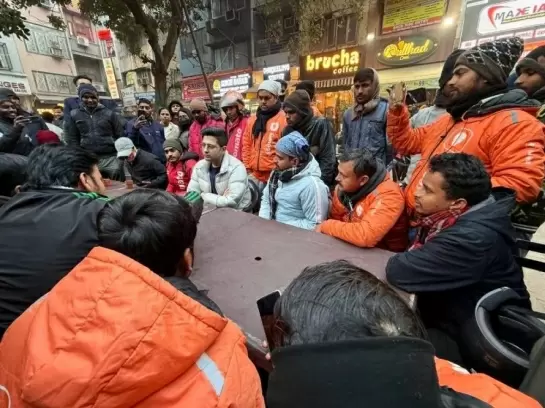AI can help prevent suicide among youth
13-December-2019
In a bid to help mitigate the risk of suicide especially among the homeless youth, a team of researchers at University of California (USC) has turned their focus towards Artificial Intelligence (AI).
Phebe Vayanos, an associate director at USC's Center for Artificial Intelligence in Society (CAIS), and her team have been working over the last couple of years to design an algorithm capable of identifying who in a given real-life social group would be the best persons to be trained as "gatekeepers" capable of identifying warning signs of suicide and how to respond.
"Our idea was to leverage real-life social network information to build a support network of strategically positioned individuals that can 'watch-out' for their friends and refer them to help as needed," Vayanos said.
Vayanos and study's lead author Aida Rahmattalabi investigated the potential of social connections such as friends, relatives and acquaintances to help mitigate the risk of suicide.
"We want to ensure that a maximum number of people are being watched out for, taking into account resource limitations and uncertainties of open world deployment," Vayanos said.
For this study, Vayanos and Rahmattalabi looked at the web of social relationships of young people experiencing homelessness in Los Angeles, given that 1 in 2 youth who are homeless have considered suicide.
"Our algorithm can improve the efficiency of suicide prevention trainings for this particularly vulnerable population," Vayanos said.
An important goal when deploying this AI system is to ensure fairness and transparency.
"This algorithm can help us find a subset of people in a social network that gives us the best chance that youth will be connected to someone who has been trained when dealing with resource constraints and other uncertainties," said study co-author Anthony Fulginiti.
This work is particularly important for vulnerable populations, say the researchers, particularly for youth who are experiencing homelessness.
The paper is set to be presented at the 33rd Conference on Neural Information Processing Systems (NeurIPS) in Vancouver, Canada, this month.IANS
Missing BJP Leader Found Dead in Pond After Five Days in East Midnapore
Bulldozer Action In Rajasthan's Chomu After Stone-Pelting Incident
Cold Wave to Intensify in Delhi-NCR as Temperatures Dip Further; Air Quality Improves
Pakistan: Sindhi leader urges UN to act on enforced disappearance of activists
Delhi Metro officials brief CM Rekha Gupta on anti-smog guns, mist sprays to check pollution









